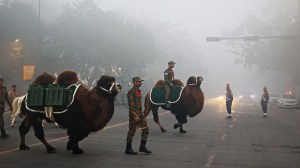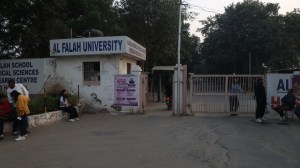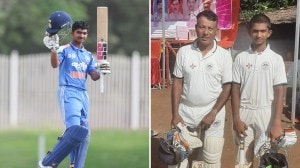Graceful exits
8226; Apropos of Coomi Kapoor8217;s 8216;Our limpet obsession8217; IE, December 6, there are...

8226; Apropos of Coomi Kapoor8217;s 8216;Our limpet obsession8217; IE, December 6, there are several instances of important persons making a graceful exit. I.K. Gujral moved out of the official PM8217;s bungalow to his private residence within hours of losing the office. J.M. Lyngdoh, the retired CEC, preferred to settle in the quiet surroundings of Hyderabad, rather than hanker for post-retirement assignments in Delhi. Gulzari Lal Nanda lived and died in seclusion8212;despite being entitled to the perks of being a former PM. Madhu Dandvate recently breathed his last without ever encashing on his ministerial past. Indian polity is not totally devoid of grace. Perhaps the Indian media does not find it sensational enough to recognise this.
8212; J.M. Manchanda New Delhi
Volcker effect
8226; While no tears need be shed over Natwar Singh 8216;Going, going, now he will go8217;,IE, December 6 for his political troubles on account of the Volcker Committee report, the very fact that a foreign oil-for-food programme can so influence politics at home should cause the gravest concern. That the Volcker report could be seen as US interference in Indian affairs does not seem to bother the media8212; which, like the BJP, is prepared to ally with any force that could help it discredit the Congress, particularly Sonia Gandhi.
8212; Bidyut K. Chatterjee Faridabad
8226; After much hue and cry, K. Natwar Singh has finally decided to resign. By his doing so, can we now conclude that he has accepted his involvement in the oil for food scandal? Or does he see it as a personal sacrifice to save the government?
8212; Mohd. Mudassir Alam New Delhi
8226; The findings of the Volcker committee report have been echoed by people like A. Matharani, Shib Shankar and the Iraq ambassador. They do not redound to the credit of the Congress party. Its rule for nearly 50 years has culminated in India being dragged down to the 88th position among 156 countries of the world in the International Transparency Index.
8212; C.R. Bhattacharjee Kolkata
Why Chennai?
8226; Why do our cricket authorities host two international matches at Chennai in
November-December, which is the time when the city has to face the wrath of the Northeast monsoon? Even in the past matches have been held in the city precisely during this period and has faced the same interruptions and wash-outs. It is hard to fathom, therefore, why the organisers would want to repeat the same
blunder over and over again! There are, of course, some external factors other than weather conditions, ground maintenance and facilities that are taken into consideration while choosing a venue. But whatever be the reason, selecting such places deliberately for playing a match that faces the prospect of being washed out is a complete waste of money for the spectators, kills the thrill associated with the series and is akin to deceiving millions of cricket fans across the nation.
8212; V. Rajesh Mumbai
Here, two more
8226; The column, 8216;Myself, Malpani8217; IE, December 1, by V. Gangadhar, made for interesting reading in an otherwise serious edit page. Let me offer the columnist a few funny Bengali surnames: 8216;Tah8217; and 8216;Law8217;. Aren8217;t they weird?
8212; Amit V. Sengupta Kolkata
- 01
- 02
- 03
- 04
- 05































